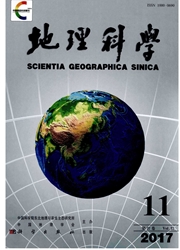

 中文摘要:
中文摘要:
简要介绍了2006年11月9-11日在北京召开的地球系统科学联盟(ESSP)全球环境变化科学大会的基本内容,着重论述了全球环境变化背景下,海平面上升、城市疾病灾害、非洲的灾害以及灾害风险评估与管理等当前灾害研究热点领域的最新进展。从大会与灾害相关分会场的讨论内容可以看出,未来国际灾害研究关注的重点问题包括:理解和研究气候变化,以及气候与生态系统和人类社会之间的相互影响;加强对决定沿海系统脆弱性因素的评估,开展避免和减轻海平面上升影响的适应性研究;推进全球环境变化对人类健康影响途径和机制的深入研究;区域食物安全和饥荒依然是全球环境变化背景下非洲发展的重要议题;增强国际社会开展灾害风险评估、灾害预警、应急和恢复等风险管理方面的研究,探讨利用灾害制图、GIS和GPS等技术,对灾害多发地区,特别是沿海地区的灾害影响与损失进行评估。
 英文摘要:
英文摘要:
This paper firstly gives a brief introduction to "An Earth System Science Partnership Global Environment Change Open Science Conference", which was held in Beijing, China during November 9 to 12, 2006. Then the remarkably recent advances and future trends of sea-level rise, urban disease, disaster in Africa and disaster risk assessments and management in global environmental change are discussed comprehensively. Based on the agenda and all forums in the 2nd ESSP, the future strategies of word disaster reduction research can be summarized as follows: to understand and research climatic change and the interaction within climate, ecosystem and human activity; to promote the vulnerability assessment in coastal areas and explore adoptability research in mitigating the impact of sea-level rise ; to further research to understand the influence mechanism of global environmental change on human health; important agenda of regional food security and famine in Africa; to strengthen disaster risk management such as disaster risk assessments, early warning, emergency and rehabilitation; and to use 3S techniques for disaster mapping, damage assessment and risk evaluation.
 同期刊论文项目
同期刊论文项目
 同项目期刊论文
同项目期刊论文
 Summer-time Denitrification and Nitrous Oxide exchange in the intertidal zone of the Yangtze Estuary
Summer-time Denitrification and Nitrous Oxide exchange in the intertidal zone of the Yangtze Estuary Evaluation of Dissolved Inorganic Nitrogen Eliminating Capability of the Sediment in the Tidal Wetla
Evaluation of Dissolved Inorganic Nitrogen Eliminating Capability of the Sediment in the Tidal Wetla 期刊信息
期刊信息
